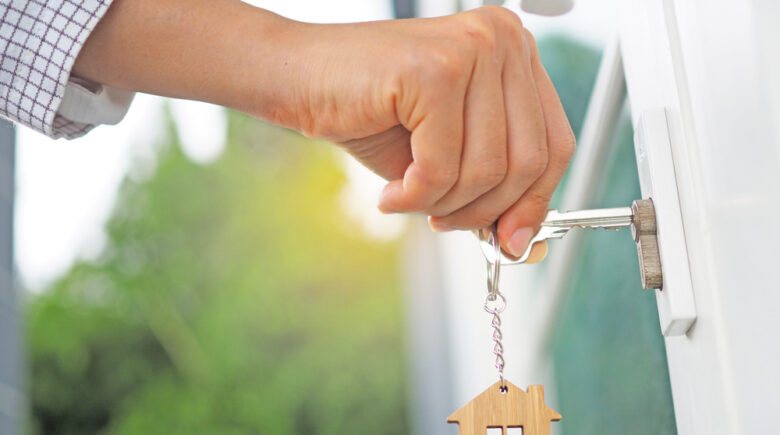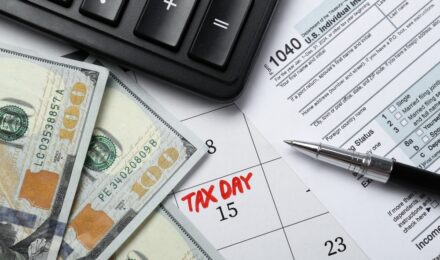For many people, owning a home is the ultimate dream. However, the reality of homeownership can be more complicated and expensive than many people anticipate. In addition to the upfront costs of purchasing a home, such as a down payment and closing costs, there are numerous ongoing expenses that come with owning a home. In this article, we’ll explore some of the hidden costs of homeownership and offer tips for managing the financial responsibilities of owning a home.
Property Taxes
One of the most significant hidden costs of homeownership is property taxes. Property taxes are based on the assessed value of your home and are typically paid annually or semi-annually. In some areas, property taxes can be quite high, especially in desirable neighborhoods with good schools and other amenities.
To manage property taxes, it’s important to research the tax rates in the areas where you’re considering purchasing a home. You can also work with a real estate agent who can provide insight into local tax rates and help you find a home that fits within your budget.
Homeowner’s Insurance
Another hidden cost of homeownership is homeowner’s insurance. Homeowner’s insurance provides protection against damage to your home and its contents from events such as fires, theft, and weather-related damage.
While homeowner’s insurance is essential, it can also be quite expensive. The cost of homeowner’s insurance varies depending on factors such as the value of your home, its location, and your insurance provider. To manage the cost of homeowner’s insurance, it’s important to shop around and compare policies from different providers. You can also consider increasing your deductible, which can lower your monthly premiums.
Maintenance and Repair Costs
Owning a home also comes with ongoing maintenance and repair costs. Unlike renting, where the landlord is responsible for repairs and maintenance, homeowners are responsible for fixing anything that breaks or wears out in their homes.
To manage maintenance and repair costs, it’s important to set aside a portion of your budget for these expenses. Experts recommend setting aside 1-2% of the value of your home each year for maintenance and repairs. You can also learn basic home repair skills, such as painting or plumbing, to save money on hiring professionals.
Homeowner’s Association Fees
If you live in a neighborhood with a homeowner’s association (HOA), you may be required to pay HOA fees. HOA fees are used to maintain shared amenities such as swimming pools, tennis courts, and common areas. While HOA fees can vary widely, they can be a significant ongoing expense for homeowners.
To manage HOA fees, it’s important to research the fees for the areas where you’re considering purchasing a home. You can also review the HOA’s financial statements to ensure that they are well-managed and financially stable.
Utilities
Homeowners are also responsible for paying utilities such as electricity, water, and gas. The cost of utilities can vary widely depending on factors such as the size of your home, its location, and your energy usage habits.
To manage utility costs, it’s important to look for ways to conserve energy and reduce usage. Simple steps such as turning off lights when you leave a room, using energy-efficient light bulbs, and installing a programmable thermostat can help you save money on utilities.
Conclusion
Owning a home can be a fulfilling and rewarding experience, but it’s important to be aware of the hidden costs of homeownership. By budgeting for expenses such as property taxes, homeowner’s insurance, maintenance and repair costs, HOA fees, and utilities, you can avoid financial stress and enjoy the benefits of homeownership. Remember to do your research, shop around for the best deals, and set aside funds for unexpected expenses. With careful planning and financial management, homeownership can be a fulfilling and financially responsible
Another important cost of homeownership is homeowners’ association (HOA) fees, which are fees paid to a group that manages the maintenance of shared community areas, such as pools, parks, and landscaping. HOA fees can vary widely depending on the community and the level of amenities provided, but they can be several hundred dollars per month in some cases. Prospective homebuyers should be sure to factor in HOA fees when considering the affordability of a particular property.
Another hidden cost of homeownership is the potential for unexpected repairs or upgrades. Even with regular maintenance, homes can require costly repairs, such as fixing a leaky roof, replacing a furnace or air conditioning unit, or repairing plumbing issues. It’s important for homeowners to have a plan in place for unexpected expenses, such as setting aside funds in an emergency savings account or considering purchasing a home warranty.
Finally, it’s important for homeowners to be aware of the potential costs associated with selling a home. Selling a home typically involves fees, such as real estate agent commissions, closing costs, and title fees. Homeowners should also be prepared for the possibility of needing to make repairs or upgrades in order to make their home more marketable to potential buyers.
In conclusion, homeownership can be a fulfilling and rewarding experience, but it’s important for prospective homeowners to be aware of the hidden costs associated with owning a home. By taking these costs into account and planning accordingly, homeowners can manage their financial responsibilities and enjoy the benefits of homeownership without being caught off guard by unexpected expenses.
For many people, owning a home is the ultimate dream. However, the reality of homeownership can be more complicated and expensive than many people anticipate. In addition to the upfront costs of purchasing a home, such as a down payment and closing costs, there are numerous ongoing expenses that come with owning a home. In this article, we’ll explore some of the hidden costs of homeownership and offer tips for managing the financial responsibilities of owning a home.
Property Taxes
One of the most significant hidden costs of homeownership is property taxes. Property taxes are based on the assessed value of your home and are typically paid annually or semi-annually. In some areas, property taxes can be quite high, especially in desirable neighborhoods with good schools and other amenities.
To manage property taxes, it’s important to research the tax rates in the areas where you’re considering purchasing a home. You can also work with a real estate agent who can provide insight into local tax rates and help you find a home that fits within your budget.
Homeowner’s Insurance
Another hidden cost of homeownership is homeowner’s insurance. Homeowner’s insurance provides protection against damage to your home and its contents from events such as fires, theft, and weather-related damage.
While homeowner’s insurance is essential, it can also be quite expensive. The cost of homeowner’s insurance varies depending on factors such as the value of your home, its location, and your insurance provider. To manage the cost of homeowner’s insurance, it’s important to shop around and compare policies from different providers. You can also consider increasing your deductible, which can lower your monthly premiums.
Maintenance and Repair Costs
Owning a home also comes with ongoing maintenance and repair costs. Unlike renting, where the landlord is responsible for repairs and maintenance, homeowners are responsible for fixing anything that breaks or wears out in their homes.
To manage maintenance and repair costs, it’s important to set aside a portion of your budget for these expenses. Experts recommend setting aside 1-2% of the value of your home each year for maintenance and repairs. You can also learn basic home repair skills, such as painting or plumbing, to save money on hiring professionals.
Homeowner’s Association Fees
If you live in a neighborhood with a homeowner’s association (HOA), you may be required to pay HOA fees. HOA fees are used to maintain shared amenities such as swimming pools, tennis courts, and common areas. While HOA fees can vary widely, they can be a significant ongoing expense for homeowners.
To manage HOA fees, it’s important to research the fees for the areas where you’re considering purchasing a home. You can also review the HOA’s financial statements to ensure that they are well-managed and financially stable.
Utilities
Homeowners are also responsible for paying utilities such as electricity, water, and gas. The cost of utilities can vary widely depending on factors such as the size of your home, its location, and your energy usage habits.
To manage utility costs, it’s important to look for ways to conserve energy and reduce usage. Simple steps such as turning off lights when you leave a room, using energy-efficient light bulbs, and installing a programmable thermostat can help you save money on utilities.
Conclusion
Owning a home can be a fulfilling and rewarding experience, but it’s important to be aware of the hidden costs of homeownership. By budgeting for expenses such as property taxes, homeowner’s insurance, maintenance and repair costs, HOA fees, and utilities, you can avoid financial stress and enjoy the benefits of homeownership. Remember to do your research, shop around for the best deals, and set aside funds for unexpected expenses. With careful planning and financial management, homeownership can be a fulfilling and financially responsible
Another important cost of homeownership is homeowners’ association (HOA) fees, which are fees paid to a group that manages the maintenance of shared community areas, such as pools, parks, and landscaping. HOA fees can vary widely depending on the community and the level of amenities provided, but they can be several hundred dollars per month in some cases. Prospective homebuyers should be sure to factor in HOA fees when considering the affordability of a particular property.
Another hidden cost of homeownership is the potential for unexpected repairs or upgrades. Even with regular maintenance, homes can require costly repairs, such as fixing a leaky roof, replacing a furnace or air conditioning unit, or repairing plumbing issues. It’s important for homeowners to have a plan in place for unexpected expenses, such as setting aside funds in an emergency savings account or considering purchasing a home warranty.
Finally, it’s important for homeowners to be aware of the potential costs associated with selling a home. Selling a home typically involves fees, such as real estate agent commissions, closing costs, and title fees. Homeowners should also be prepared for the possibility of needing to make repairs or upgrades in order to make their home more marketable to potential buyers.
In conclusion, homeownership can be a fulfilling and rewarding experience, but it’s important for prospective homeowners to be aware of the hidden costs associated with owning a home. By taking these costs into account and planning accordingly, homeowners can manage their financial responsibilities and enjoy the benefits of homeownership without being caught off guard by unexpected expenses.



